Parliamentarians from Africa and Europe met in the capital of Namibia, Windhoek, from the 24th to the 26th of November 2023 for the fourth Africa-Europe Parliamentary Conference under the title “New approaches in European Africa policy and in bilateral party cooperation.” In a total of five panel discussions, it was discussed what expectations Europe and Africa can have from each other; what trends there are in security policy on the African continent and how these are integrated into European security interests; what developments there are in international party cooperation; what challenges government parties in Africa face and under what conditions opposition parties work in Africa. Of note was an expert presentation dealing with values in Africa and led to a discussion of the extent to which African political parties represent social values.
The conference was opened by the chairman of the Konrad Adenauer Foundation and former President of the Bundestag, Professor Norbert Lammert, who, in his remarks highlighted that in a globalizing world, no single state can, alone, influence or even determine the rules and framework conditions of the global system. He asserted, “My understanding is that the increasing loss of nations’ sovereignty – individual nations’ sovereignty makes it all the more necessary for states to work together if they want to maintain their ability to shape and influence political developments. This also applies to Africa and Europe in principally, very similar way.” Prof. Lammert further stressed the need to rethink the perception of the African continent in both Europe and Africa. Europe must be much more responsive to the interests of African partners and refrain from paternalism and both sides need to identify their interests and map out win-win scenarios and priorities when it comes to selecting partners and fields of activity.
Namibian MP Vipuakuje Muharukua, who delivered welcoming remarks in place of the speaker of Namibia's parliament underscored the importance of policy discussions and dialogue in enhancing bi-and multilateral relations. While appreciating the partnerships made in the energy sector, he reflected on disasters including Piper Alpha in the North Sea and the Deepwater Horizon oil spill in the Gulf of Mexico and cautioned a looming environmental risk if Africa does not have the expertise and laws to safeguard the installations and wells drilled onshore and offshore. This shortcoming presents an opportunity for Europe and Africa to partner on education and skills development.
With regard to the mutual relationship between the two continents, Andreas Schwab, CDU member of the European Parliament, emphasized that Europe would not enter into a geopolitical competition in Africa, but would instead want to make offers for a fair partnership that, above all, also covers the issues of economy and trade, including energy supply and security. Agriculture and food security and, increasingly, migration should be further priority topics for cooperation. Mkhuleko Hlengwa, South African MP from the Inkatha Freedom Party, stressed that close ties with Europe are in Africa's own interest. Hlengwa added that it is now necessary to rebuild a relationship of trust, which requires leveraging “soft diplomacy” from the European side.
Tjekupe Katjimune, Namibian MP for the Popular Democratic Movement (PDM), called on Europeans to end the doctrine attitude in their relations with Africa and take into account the new geopolitical realities. If Europeans' attitudes towards Africa do not change, partnerships with autocratic states would become more attractive as an alternative, which would not be in the interests of democracy and the majority of Africans. Stefan Friedrich, head of the Africa department of the Konrad Adenauer Foundation, took up this point in his contribution. Development cooperation between Europe and Africa must certainly be more closely aligned with the strategic interests of the partners, with greater attention to the interests of the African partners. Europe must also offer more cooperation than aid.
A concrete example of a more interest-oriented cooperation was discussed in Panel 2, which explored security trends in Africa and European interests. Lutero Simango, MP from the opposition MDM party from Mozambique, said that good security policy requires democratic governance, which is not the case in Mozambique. In Africa, an expanded understanding of security must be applied, which also includes, for example, issues of food security, climate change, a lack of employment opportunities and a lack of freedom. Kingsley Chinda, PDP MP from Nigeria, noted the global nature of security issues, which often hampers solutions at the national or regional level. Europe and Africa need to understand that they can have different positions and still work together. Security sector partnerships in Africa are changing foreign policy, as shown by Russia's military support for African states and their positioning on the war in Ukraine.
Susanne Conrad from the Konrad Adenauer Foundation used tangible examples to show trends in the security situation in Africa and noted that the security situations in East Africa, especially in the Horn of Africa, as well as in West Africa with a focus on the Sahel region in international politics would not receive sufficient attention. Europe must become more involved in securing trade routes in the Red Sea and in curbing Russian expansion in West Africa. Cynthia Chigwenya, the African Union’s Youth Ambassador for Southern Africa, emphasized the interdependence of peace and development and the particular threat to peace posed by the ethnicization of politics and youth unemployment.
The panel on international party cooperation was used to present the work of the African Peer Review Mechanism (APRM). In his presentation, McBride Nkhalamna, Research Director of the APRM, highlighted the increasing importance of political parties as a target group for the African Union. The aim of the APRM in working with political parties is to strengthen their institutions and improve the effectiveness of party work. Tundu Lissu, former presidential candidate of his party CHADEMA in Tanzania, described the extensive party cooperation of former liberation movements in Africa, which would receive financial and material support from China.
The cooperation between parties from the centre-right spectrum, most of which would be in the opposition, would therefore be significantly less pronounced. Furthermore, there is a phenomenon where center-right parties often break off their contacts with the network of opposition parties when they come to power. Lissu advocated that centre-right parties should also receive more financial support from international partners such as the KAS. However - according to Gerhard Wahlers, head of international cooperation at the KAS - partners like the KAS, unlike the Chinese and Russians, observe the laws in international party cooperation that set strict limits, especially for financial support for parties. Stefan Rouenhoff, a member of the Bundestag for the CDU, added that the perception of Western influence on political parties and processes must be avoided.
Unfulfillable expectations are the daily business of parliamentarians worldwide, explained CDU Bundestag member Annette Widmann-Mauz in the fourth panel, which dealt with the problem of governance in Africa. However, German MPs would not be forced to fulfil personal or individual concerns. Politicians have to manage expectations and take into account that during the election campaign, the more you promise, the higher your expectations will be. However, good governance requires realistic policies.
From the perspective of an African ruling party, MP Mamamello Holomo from Lesotho described the challenge posed by the combination of a lack of resources and high expectations for the government and politicians close to the government. No roads, water, electricity, or work: for many people, the elected representative is the last hope for solving these problems. Given the lack of resources to solve these problems, it is difficult for the MP to convey to citizens that they have elected the right person.
Similarly, Madalitso Kazombo, MP from Malawi's ruling party, MCP, argued that the current Malawi government had also inherited a broken economy due to structural adjustment programs failing to generate the necessary growth to meet the demands of a growing population. The international financial system makes the government's work even more complex, and high-interest rates would drive African countries into the arms of the Chinese.
The working conditions of opposition parties in Africa were discussed in the fifth panel using the examples of RENAMO (Mozambique), KANU (Kenya) and UNITA (Angola). RENAMO is surviving as an opposition party in the challenging environment of a dominant party system, explained Eduardo Namburete. The opposition in Mozambique has neither the financial nor the human resources to fulfil its mandate. Supporters of the party would have to hide, and legislative initiatives from the opposition in parliament are generally rejected by the majority. The opposition parties in Kenya are also fighting for survival, said Amina Abdukkahi (KANU). A peculiarity of Kenyan politics is that elections are held along ethnic lines, and the political parties forge alliances before the elections. In parliament, the two governing parties share all important committees between themselves.
Even if democracy in Angola is currently moving in the right direction, said Rafael Savimbi from UNITA, the situation of the opposition is similar to that of the previous speakers. If you belonged to the opposition, you would be excluded from public contracts. Opposition bills in Parliament are blocked with the majority's votes or sometimes slightly amended and then introduced by the majority. However, UNITA has taken successful measures to be able to work more successfully. This includes strengthening internal party democracy, opening up to civil society and a stronger presence in international forums in order to overcome the party's political isolation. UNITA is increasingly recruiting among young Angolans and investing in social media to offset the disadvantage in public media.
Stefan Rouenhoff referred to the CDU/CSU parliamentary group in the German Federal Parliament’s new position paper on cooperation with Africa.[1] Amongst other proposals, the paper requests to systematically expand economic cooperation with African countries by strengthening the role of the private sector, facilitating trade and investments, and facilitating the creation of local value.
In his closing speech, Dr. Gerhard Wahlers, deputy general secretary at KAS, named a few key takeaways from the conference, including that:
- Without growth, there is no development, and foreign investments are indispensable in generating growth. At the same time, this presents a dilemma: If we [Europe] help to create jobs, then we are stabilizing governments in Africa that have already been in power for 30 years.
- Relations between Europe and Africa must be based on “equal footing”. Equal footing also means that everyone is responsible for their actions.
- We must articulate interests based on values. When interests overlap, projects move forward -- if there are no shared interests, then they don't. It is not wrong if Germans and Europeans formulate our interests and explore common ground with African countries.
- We have common interests in security issues. It is in Africa's interest to combat terrorism or organized crime. Europe wants this, too, because stability is good for trade, business, our own security, and the fight against illegal migration.
- There are different parliaments in Africa: some with regular changes of government and others that have been in power since independence and mainly use parliament to approve government decisions. We have to take this into account when we talk about working with parliaments and be cautious of partnering with institutions that do not fulfil their legislative mandates.
[1] https://www.cducsu.de/sites/default/files/2023-12/PP%20Afrika%20neu.pdf
Topics
About this series
The Konrad-Adenauer-Stiftung, its educational institutions, centres and foreign offices, offer several thousand events on various subjects each year. We provide up to date and exclusive reports on selected conferences, events and symposia at www.kas.de. In addition to a summary of the contents, you can also find additional material such as pictures, speeches, videos or audio clips.
Order details
Place of publication
Johannesburg, South Africa.



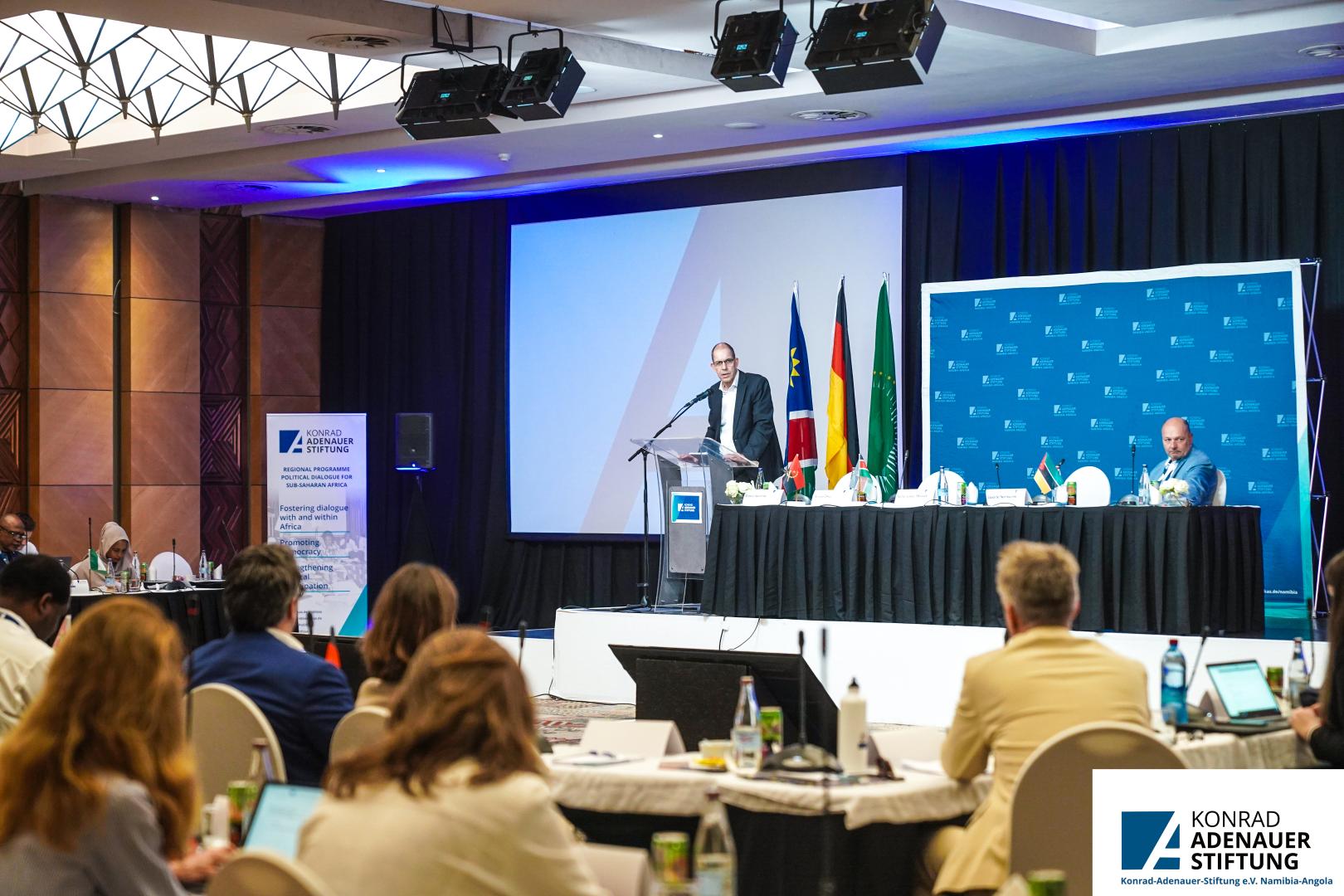
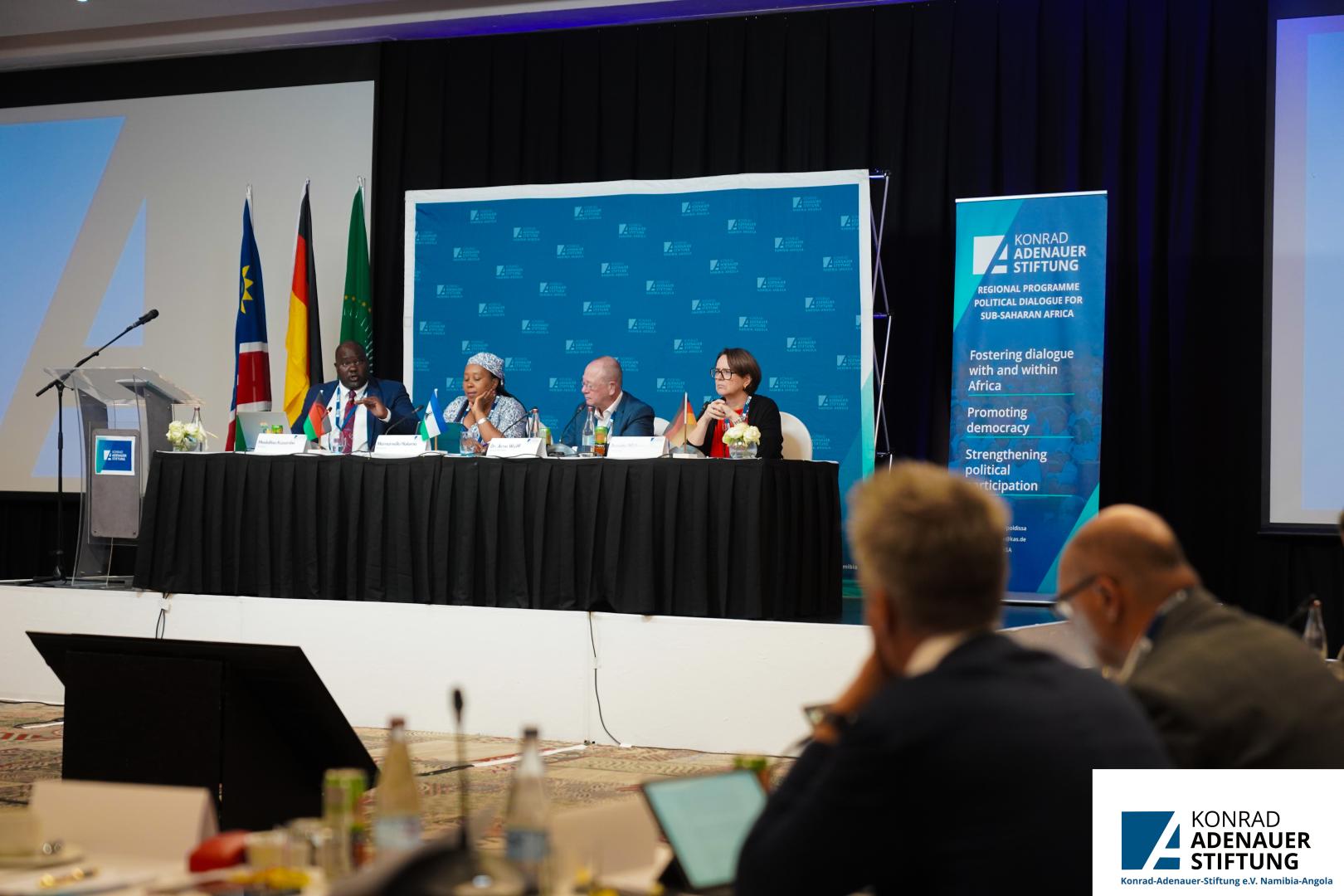
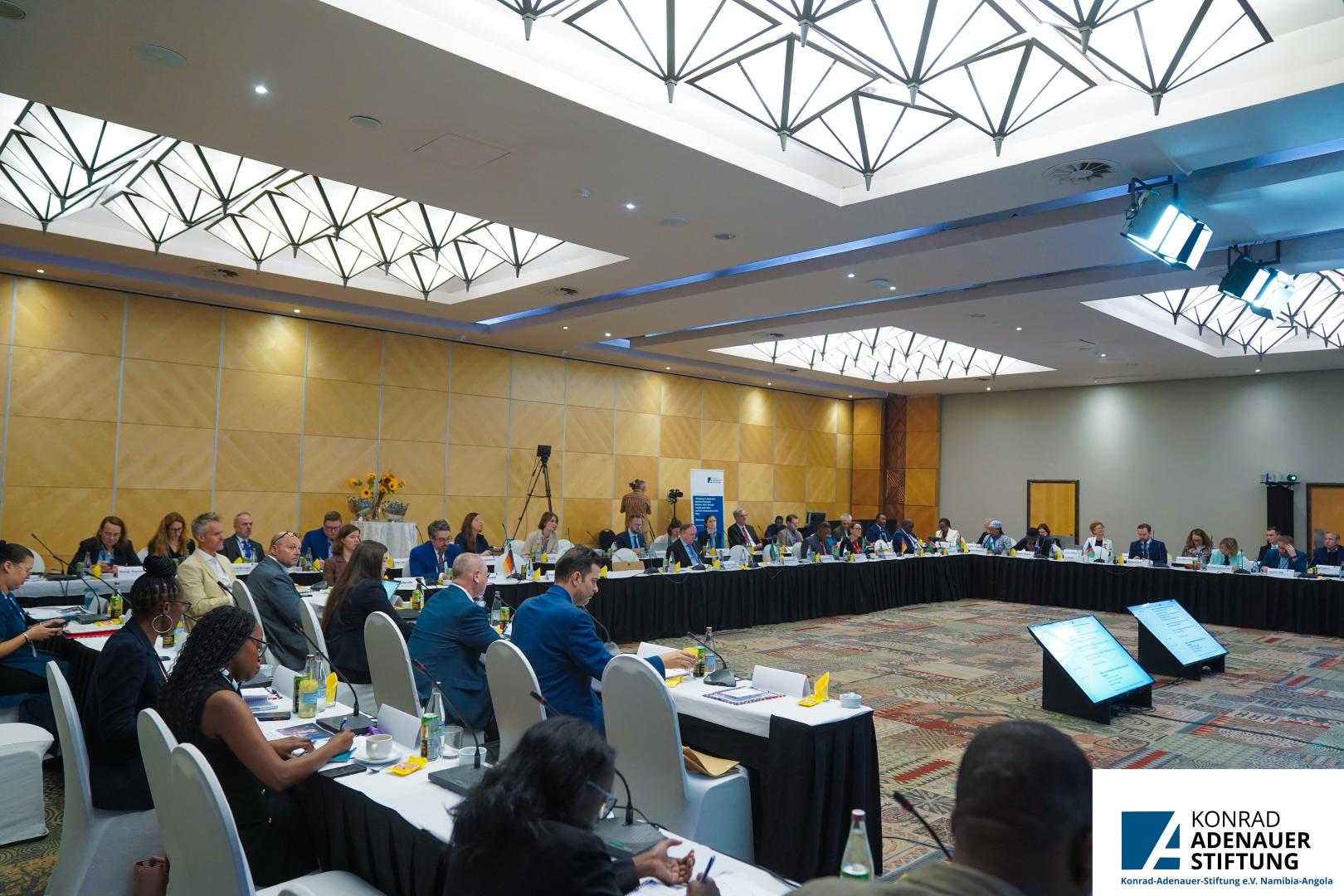
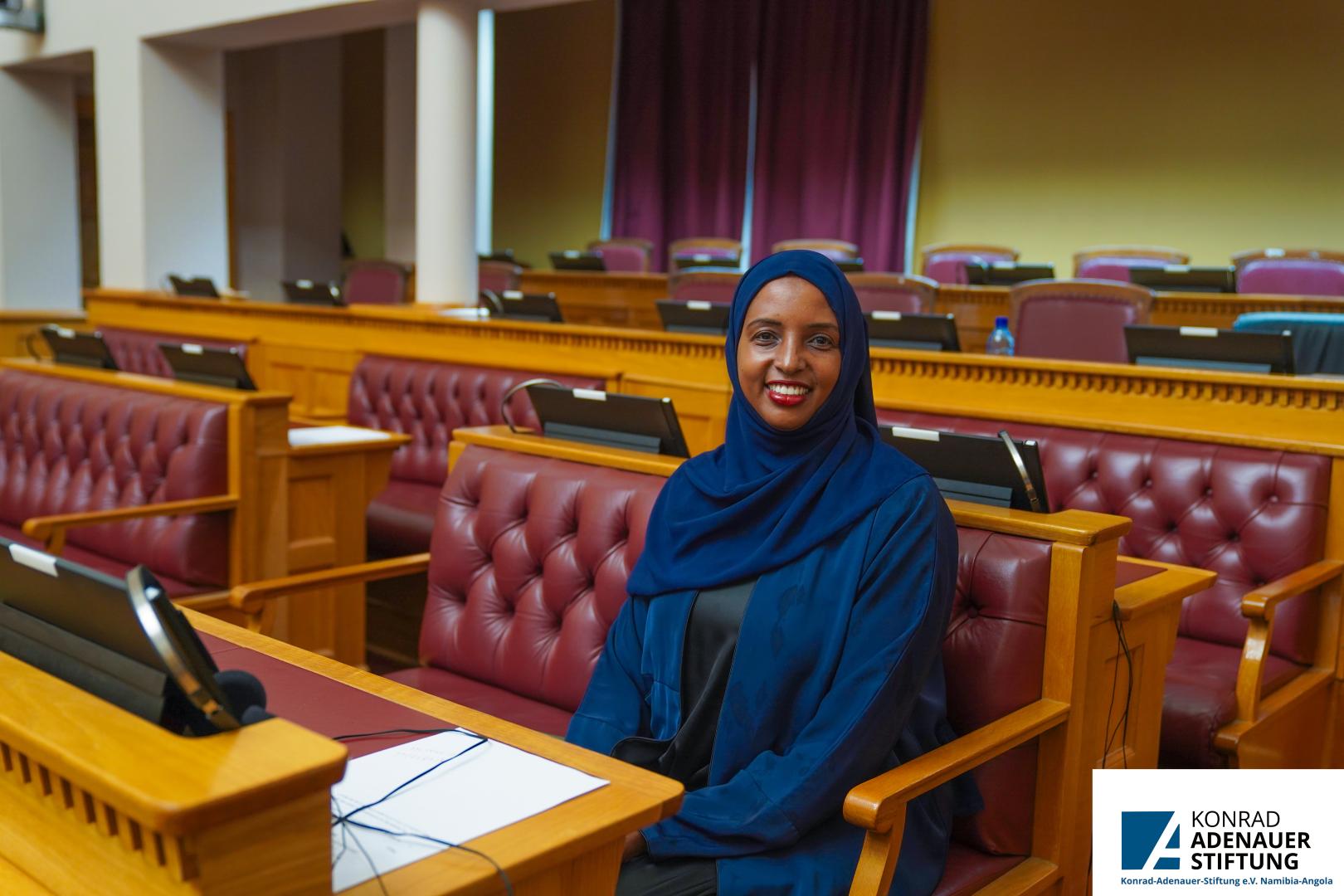
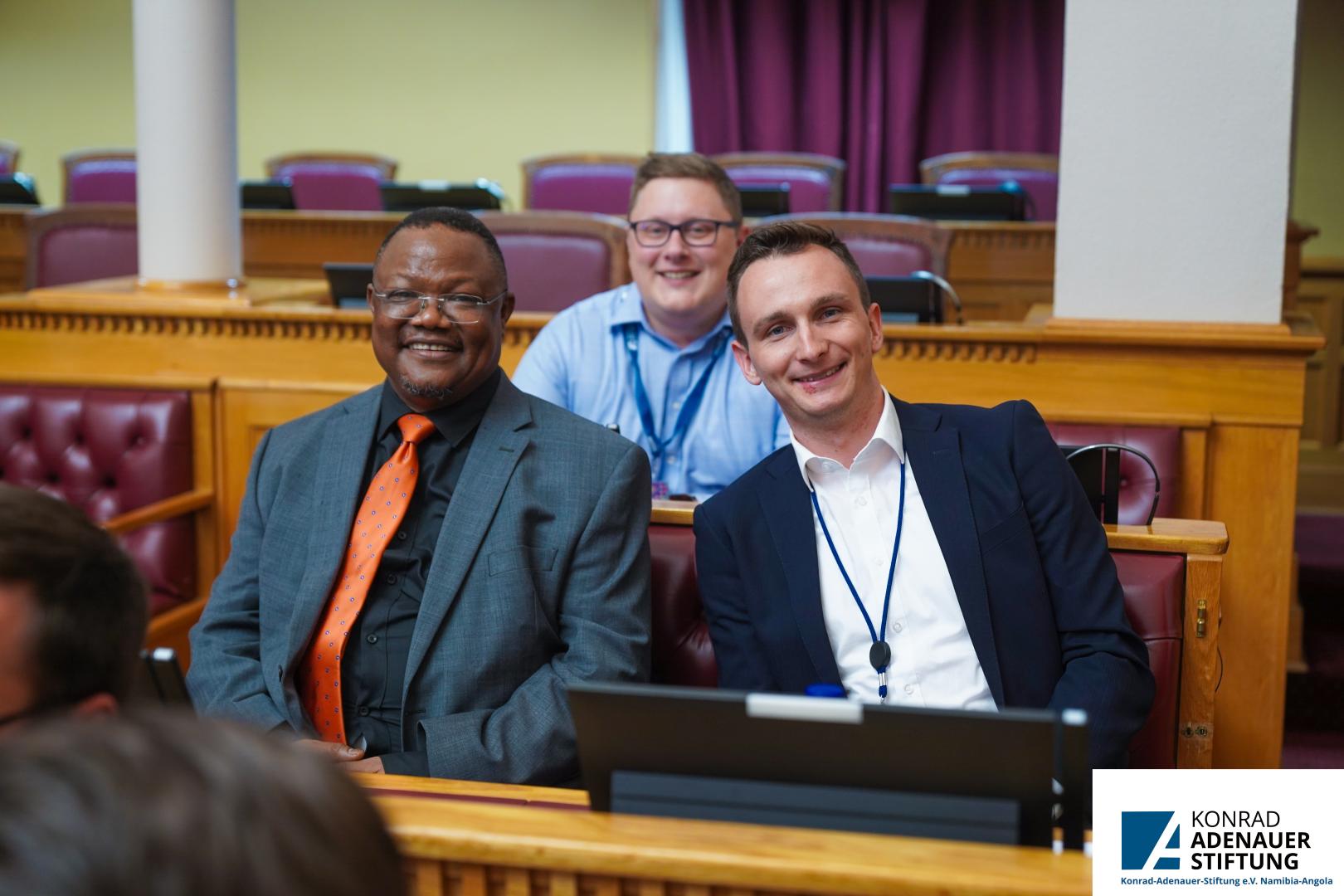
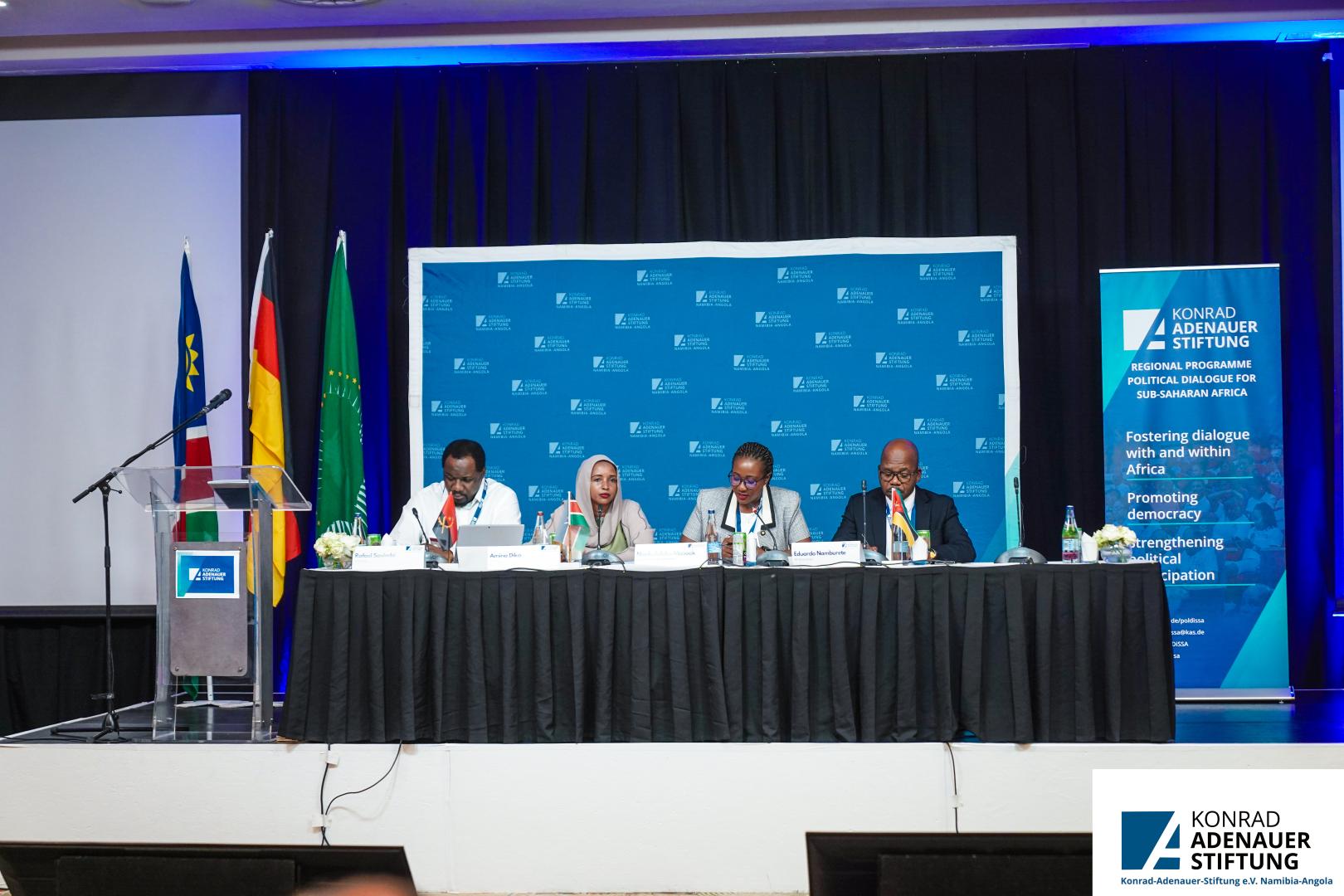






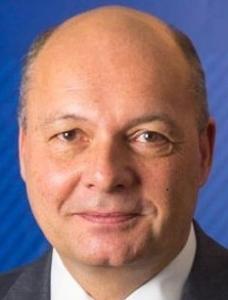
You need to sign in in order to comment.